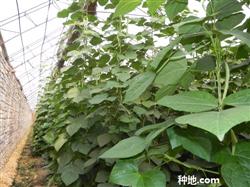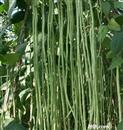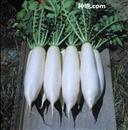How to sow and fertilize beans?

How to sow and fertilize beans? Bean is one of the main vegetable crops in our province, which is planted all over the country, covering an area of more than 700000 mu. Beans are rich in protein, carotene, high nutritional value, good taste, deeply loved by people, now its sowing and main fertilization techniques are introduced as follows. Sowing time and specification most of the varieties of beans cultivated in our province belong to long bean and medium light type, and they are not strict in light, and can be planted in spring, summer and autumn. Its varieties are mainly divided into two types: first, green beans, mainly Qiwei green, Suijiao 101, Xinqing, Zhejiang green, Huanghuaqing, Jinqing, Teqing and other varieties; second, white beans, there are mainly Kaishang 2, Luhuabai, Erlubai, August beans, Xia Bao, Taixuan, Chunyan, Jindi, Jinsui and other varieties-Fengchen No. 2 is a type of oil green beans between green beans and white beans, which is very popular with consumers. Beans are warm and heat-resistant, but not resistant to frost, and the whole growing period needs to be carried out under frost-free conditions. The optimum temperature for plant growth was 20: 30 ℃, and the optimum temperature for flowering and pod formation was 20: 25 ℃. The absorption capacity of the roots was significantly affected when the temperature was lower than 10 ℃, and the plants below 5 ℃ were damaged, and the stems withered when the temperature was close to 0 ℃. The lowest temperature of spring sowing period in our province should be above 5 ℃, while the autumn sowing date should be calculated from the lowest temperature above 5C in the later stage of podding. Beans require high border planting, with a width of 1.6 cm, a height of 25 cm, 2 rows per row and a spacing of 22 cm to 25 cm. Second, reasonable fertilization of beans is not strict to the planting land, but in order to obtain high yield, the slightly acidic sandy loam should be selected, and the fields which have not planted legume crops for more than two years should be planted. The acidity of the soil is too high and lime is used to neutralize the soil. If the seedling stage is lack of fertilizer and water and the seedling stem growth is weak, the high yield can not be obtained, but too much fertilizer and water in the early stage will cause excessive plant growth, light long vine, less inflorescence, few pods, lower flowering node position, lateral bud germination and the formation of middle and lower stem vines. Therefore, the fertilizer was mainly applied in the early stage of bean growth, increased fertilizer and water in the flowering and podding stage, and began to re-apply topdressing in the harvest period. Generally, 2000 kg of base fertilizer per mu, 5 kg of urea at seedling stage, 2 times of topdressing at flowering and podding stage, and 20 kg of compound fertilizer each time, which can be applied in strips or holes. During the flowering and podding stage, extra-root topdressing (the concentration should not exceed 0.4%) and spraying flower and pod preservative were carried out, and the mixture of high efficiency foliar fertilizer and Gaolida, Tianfengsu, brassine and other flower and pod preservation agents were generally sprayed once a week. Click to get more bean planting techniques click to get more vegetable planting techniques
- Prev

What is bean formula fertilization?
What is bean formula fertilization? Please introduce the formula fertilization method of beans: 1 fertilizer characteristics: 10.2kg of pure nitrogen, 4.4kg of phosphorus pentoxide and 9.7kg of potassium oxide are needed to produce 1000 kg of beans. (2) the main points of fertilization for 2000 kg per mu: 2.1base fertilizer. Before planting, apply 3000 kg organic fertilizer per mu, 4.
- Next

How to grow high-quality white radish?
How to grow high-quality white radish? Please guide high-quality white radish to grow in this way: to choose suitable soil to grow radish should choose crops with less fertilizer consumption, more residual organic matter and no same diseases and insect pests as the previous crop. It is necessary to avoid cruciferous vegetables as the first crop, otherwise it is easy to lead to diseases. The adaptation of radish to sandy soil.
Related
- Where is it suitable to grow horseradish in China? it is expected to see the middle altitude horseradish in Alishan.
- How to prevent tomato virus disease reasonably? (Control methods included)
- Many people like to plant towel gourd on the balcony. What are the main points of this method and management?
- What crops can chili peppers be mixed with?
- Fertilization techniques and matters needing attention in Tomato
- What are the grafting techniques for peach seedlings in spring?
- Harm and control methods of root swelling disease of Chinese cabbage
- What are the pests of sweet potatoes? How to prevent and cure it?
- Symptoms, causes and Control methods of navel Rot in Tomato
- The cause of "Cucumber rotten bibcock" in Farmers' planting Cucumber and its Control Plan

